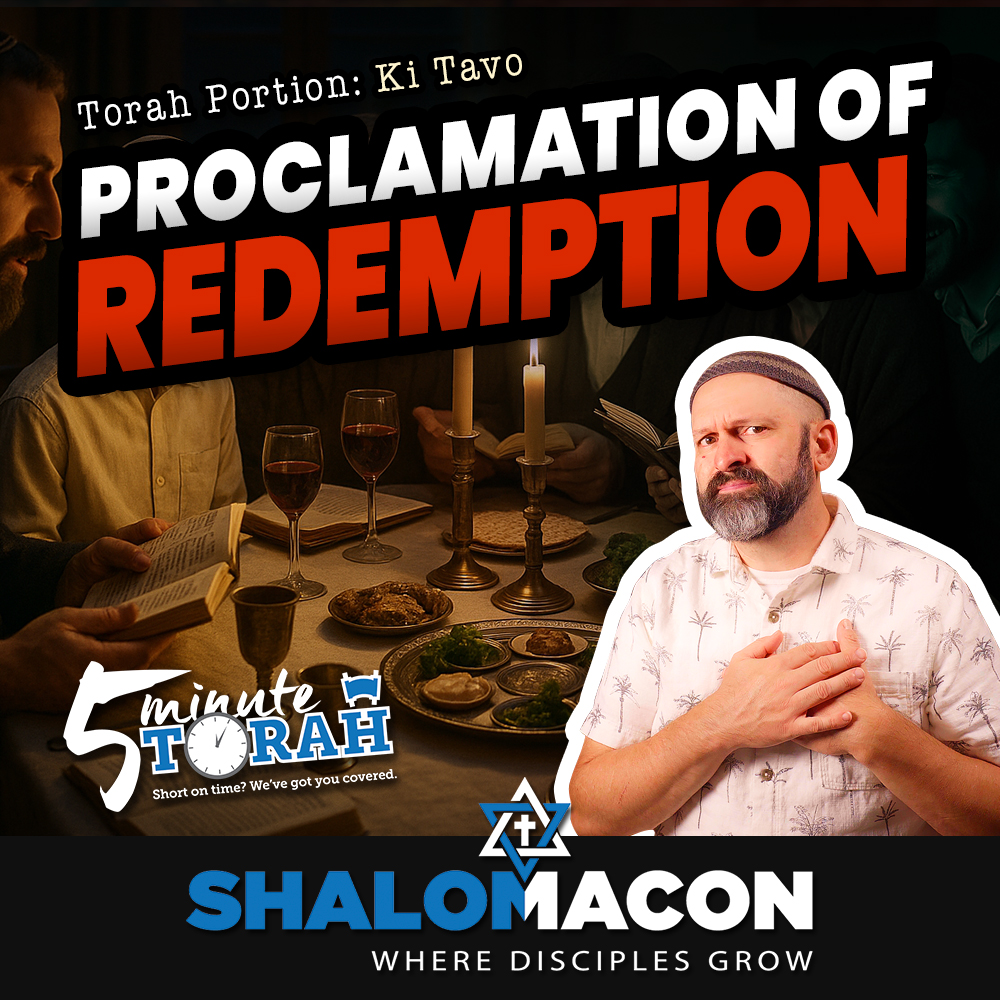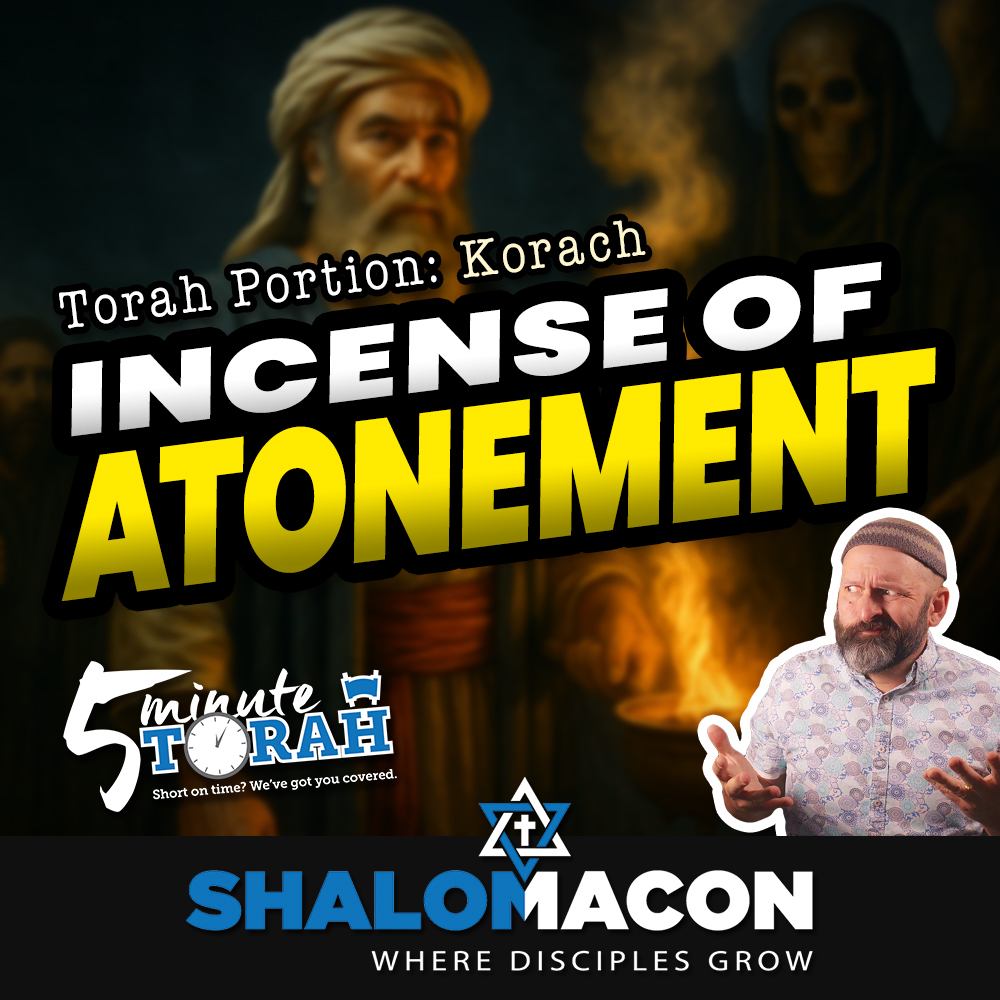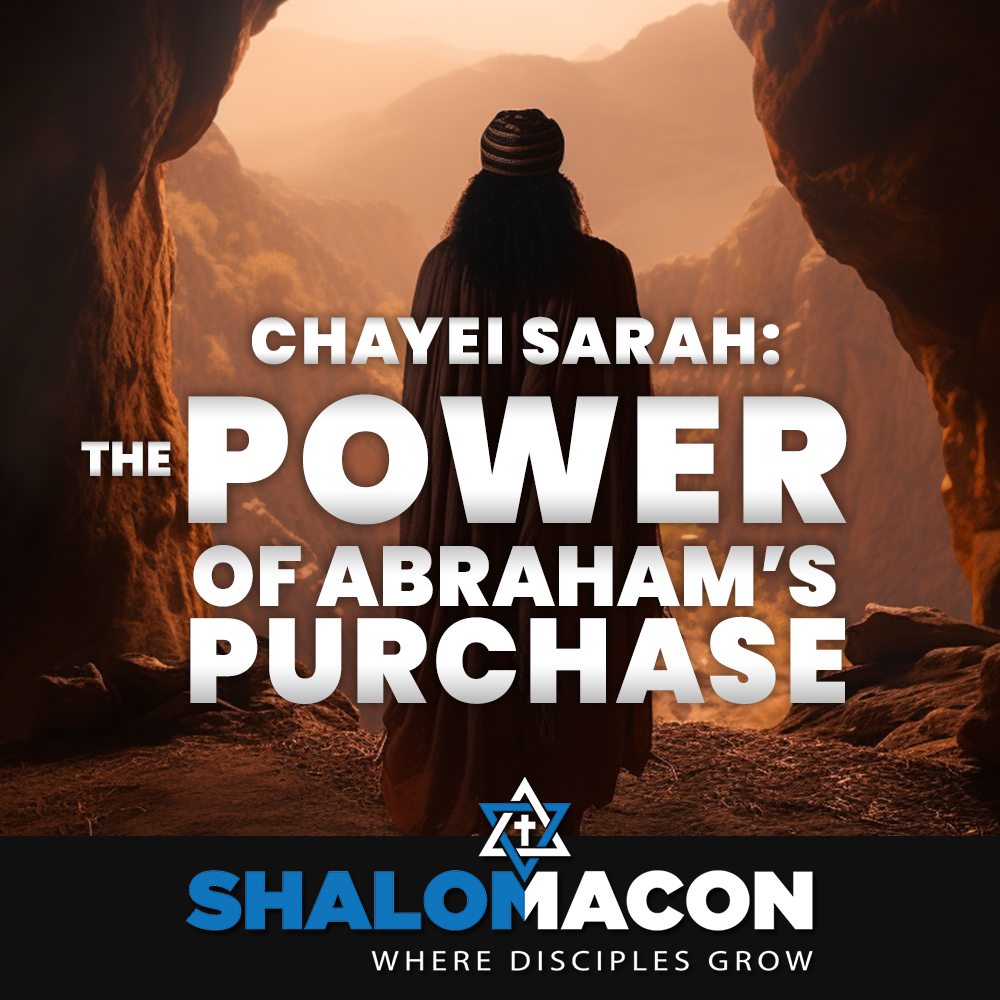Episode Transcript
[00:00:00] What if your deepest pain could become your loudest proclamation? God didn't command Israel to forget Egypt. He commanded them to proclaim it, to retell the suffering, the deliverance and the blessing. This week's Torah portion reminds us that redemption isn't just about what God did then, but how we testify to it now. Join me as we learn how to turn our broken past into a proclamation of redemption in this week's five minute tour.
[00:00:33] Shalom and Blessings from Shalom Macon, the place where disciples of Yeshua learn, connect and grow. I'm Darren and before I get into the five minutes of my five minute Torah commentary, let's cover a few quick facts about this week's Torah portion. This week we are studying the 50th portion of the Torah cycle and the seventh portion of the Book of Deuteronomy. We are in the portion of ki Tavo Deuteronomy 26:1 through 29:8 and here are the three things that you need to know about it. Number one first fruits and Gratitude Declaring God's faithfulness Kitavo begins with the Mitzvah of Bikurim, bringing the first fruits of the harvest to the sanctuary. Each person was to recite a declaration recounting God's deliverance from Egypt and His gift of the land. See Deuteronomy 26:1 11. This ritual wasn't just about produce, it was about gratitude. By offering the first and the best, Israel acknowledged that everything they possessed came from the hand of heaven. Gratitude turns ordinary harvest into moments of worship, reminding us to continually recognize God's faithfulness in our lives. Number two Gerizim and Ebal Blessings and Curses Moses instructed the children of Israel to take part in an unusual act. Once they crossed over the Jordan river, half of the tribes were to go up onto Mount Gerizim to bless the people, and these included the tribes of Simeon, Levi, Judah, Issachar, Joseph, and Benjamin. The other tribes were to climb Mount Ebal for curses Reuben, Gad, Asher, Zebulun, Dan, and Naphtali. And the Levites were to proclaim to all the men of Israel a set of curses upon anyone who would violate the Torah's ethical prohibitions. Together, all the people were to affirm these statements within Amen. The sharp contrast between the blessings and the curses reveals the weight of Israel's choices. Walking with God leads to life and flourishing. Turning away brings destruction and despair. Covenantal faithfulness is not optional. It's the key to blessing. And Number three Back to the future The Prophecies of Moses Moses provides a glimpse into the potential future trajectory of the nation. He describes a series of blessings and curses that may come upon them by based on either their adherence to or their deviation from God's commandments. The Torah consistently teaches that obedience to God's commandment leads to blessings, while disobedience can lead to negative consequences. Through this, Moses provides Israel with a clear understanding of the direct connection between their actions and the unfolding events in their history. He encourages them to choose wisely, reminding them that their choices will shape the destiny of the nation. This concept of divine reward and punishment is an ethical cornerstone in Jewish thought, promoting accountability, responsibility, and the pursuit of righteousness.
[00:03:30] What does it really mean to live by the Spirit of the Law and not the Letter of the Law? For centuries, believers have been told that the Law of God is a burden and something Yeshua came to set us free from. But what if that's not what the scriptures say at all? What if Paul's words about the letter of the law killing were never meant to pit God's spirit against his own commandments? If you've ever struggled to reconcile law and grace, Spirit of the Law will open your eyes to a richer, more faithful understanding of both. It will challenge assumptions, bring clarity to misunderstood passages, and invite you into a deeper walk of obedience, one that's alive with the Spirit of God. Pick up your copy today and let the Spirit of the Law transform the way you see God's Word and and the way you live it. This week's Torah, or commentary is called A Proclamation of Redemption and comes from my book, Five Minute Torah, Volume 3. At one point every spring, after the sun has set, we sit down together with our family and guests in order to commemorate our redemption with the Passover Seder. We recall the exodus from Egypt and remember God's great hand of deliverance. We do this by using a book called the Haggadah. It guides us through our Passover experience, telling us what to say and what to do. One of the passages we recite from the Haggadah is found in our current Torah portion and you shall make response before the Lord your God. A wandering Aramean was my father, and he went down into Egypt and sojourned there, few in number. And there he became a great nation, great, mighty and populous. And the Egyptians treated us harshly and humiliated us and laid on us hard labor. They then we cried to the Lord, the God of our fathers, and the Lord heard our voice and saw our affliction, our toil and our oppression. And the Lord brought us out of Egypt with a mighty hand and an outstretched arm, with great deeds of terror, with signs and wonders. This is Deuteronomy 26, verses 5 through 8 according to the Rambam. This proclamation is central to the Seder, since everything we read in the Haggadah is focused on what this verse summarizes the detailed suffering of the children of Israel and miraculous deliverance through the hand of God. However, if you've ever participated in a Passover Seder and read this passage from the Haggadah, you probably notice the translation is quite different at the beginning of this passage. Most Bible translations say something to the effect of my father was a wandering Aramean. The Haggadah, on the other hand, translates this passage to say, an Aramean tried to destroy my father. A Over the centuries, various rabbis have debated over the proper interpretation of this passage. Should we read it as an Aramean tried to destroy my father, or as my father was a wandering Aramean? For instance, Onkylos, in his definitive Aramaic translation of the Torah, argued that it should be translated as the former, whereas Ibn Ezra and others argued the opposite. Which Way is Correct? If you spent any time studying the Scriptures from a Jewish perspective, you'll realize that the answer is yes. Without going into technical details, this is because the Hebrew in this passage, along with many other passages like it, can be read either way. Each of these readings reflects a truth about Jacob. First, he had no possessions of his own when he fled from his brother Esau to his uncle Laban in Aram. He sojourned in Aram, thus becoming a wandering Aramean this verse speaks of. However, we also hear Laban the Aramean telling him, it is in my power to to do you harm. Genesis 31:29 Another thing Laban told him was the daughters are my daughters, the children are my children, the flocks are my flocks, and all that you see is mine. Genesis 31:43 from these two verses we see that an Aramean his uncle Laban, not only intended to do Jacob harm, but he also wanted to destroy any future he may have had by claiming everything of Jacob's as his own. But despite his humble beginnings and Laban's best efforts to destroy him, Jacob's wealth increased and his family multiplied. God blessed him and made him into a great nation. Commenting on this passage, Rabbeinu Bahia points out an important lesson we can learn from this text and its various interpretations. He says, we are supposed to recite this passage at a time when we are living free from poverty and slavery we we should look to the past and see how events have worked together to bring us to this point in our lives and acknowledge that our success and our well being are completely dependent upon the One who controls these events. We remember that we are forever indebted to his kindness. Where has God brought you from? How has he delivered you and how has he blessed you? Sometimes we try to suppress painful memories of our past out of self preservation. But God wants to turn those pains of the past into milestones to mark starting points of our present and our future. From there, he wants us to remember that it is he who brought us out of those dark days. It is he who has blessed us and given us hope. By sharing our story with others, we won't easily forget what God has done in our lives. It is our proclamation of our redemption. What is your story and who will you tell it to? Are you taking advantage of the month of Elul? Because the Hebrew month of Elul is more than just another month. It's a divine invitation. The sages call it the time when the king is in the field. What does that mean for you and me? Today I've got a full video that dives into it. You don't want to miss it. Just click on the link right here. Check it out.
[00:09:23] Sam.



